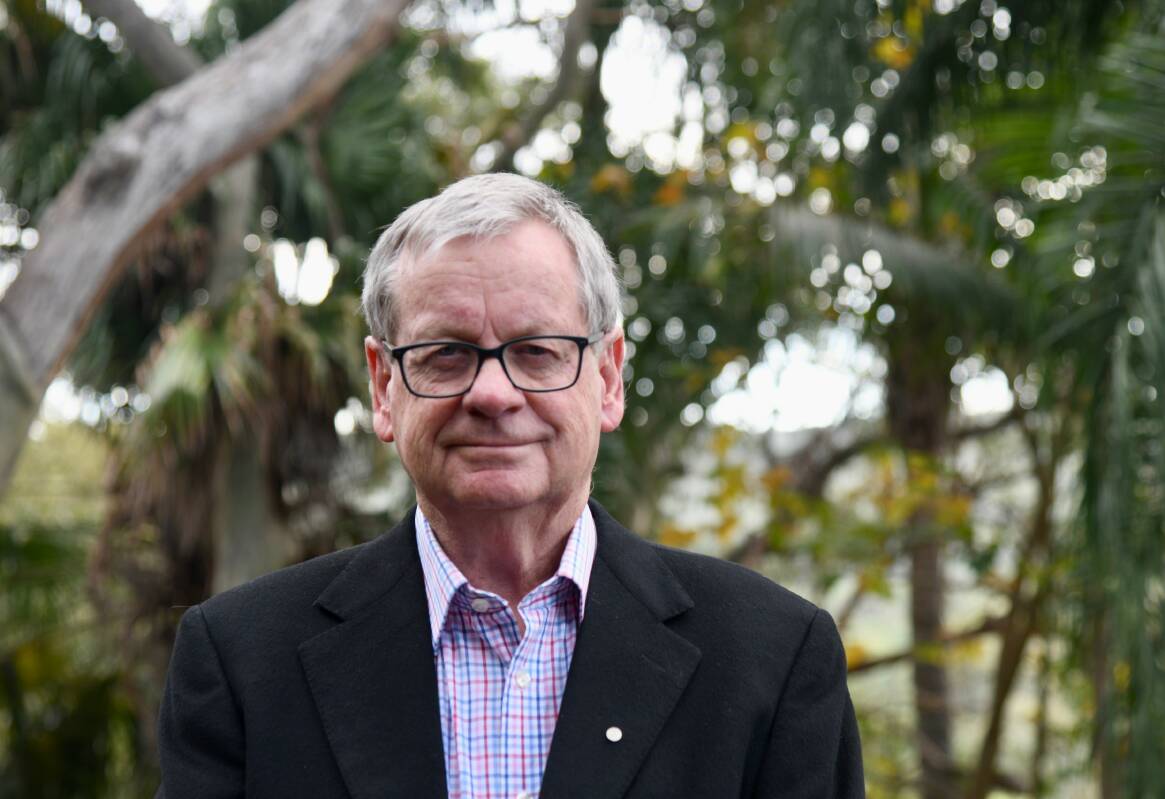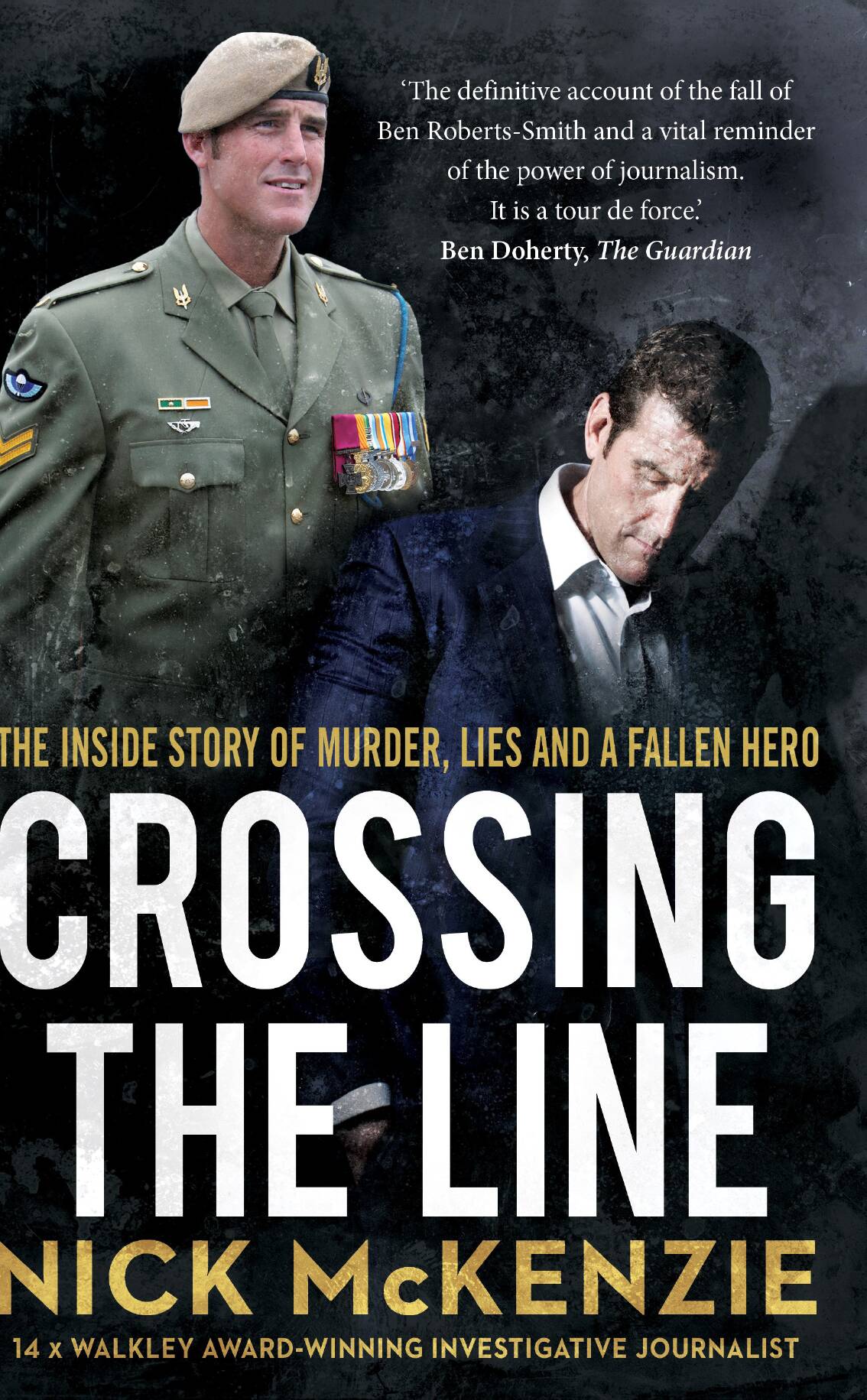
As big as Ben Roberts-Smith's ego is, it's unlikely he realised how formidable investigative journalists Chris Masters and Nick McKenzie were going to be when it came to judging what truth is.
When Federal Judge Anthony Besanko ruled on June 1 that media reports by Masters and McKenzie alleging the former special services soldier murdered unarmed civilians during his time in Afghanistan to be substantially true, it brought to an end Roberts-Smith's defamation charges against the pair and the media companies they wrote for.
The case brought by Roberts-Smith ran for more than 100 days, with legal costs running at an estimated $25 million.

The two award-winning investigative journalists will appear in a special engagement in Newcastle today in conversation with Newcastle Writers Festival director Rosemarie Milsom, discussing their respective new books Flawed Hero: Truth, Lies and War Crimes (Allen & Unwin) by Masters and Crossing the Line: The Inside Story of Murder, Lies and a Fallen Hero (Hachette) by Nick McKenzie.
Masters was first embedded with Australian soldiers in Afghanistan in 2007.
It was only years later that he heard mention of possible war crimes by an Australian soldier, and it took him and McKenzie a long time to verify incidents and names, breaking the story in June 2018.
But the heat from Roberts-Smith and his allies to back off the story, amid their claims the stories were inaccurate and untrue, was relentless, right up until the court decision this June.
Roberts-Smith's legal team has already filed for an appeal.
But Masters, with a long track record of investigative and award-winning reporting, was always invested in the story for the long haul.
"You finish what you start and this thing started a long time ago," he said.

"But I do think it did turn out to be an epic case.
"And it's interesting, too, when Nick and I were first working on it, it was hard to get the public interested. There was a challenge to it: a war's hero's reputation isn't the first kind of story they connect with.
"But over time, after that 110-day trial and everything, people really began to engage.
"When we came to the press conference after the trial, it was the biggest media scrum we'd ever seen.
"I think about it a lot.
"A lot of these events we're doing, like the one at Newcastle, are very well attended.
"I'm inclined to think it's more about truth than it is about war crimes.
"That public sense, that in this one, we went a lot further than what the media is generally able to do."
The books are hot off the press, no small feat in publishing. Even Masters is amazed by the quick turnaround from the end of the trial to the publishing dates (July 12 for his book).
"There's a lot of hard work in a book," Masters said.
"This was particularly hard because it could only be done between the time the trial finished and when we got the judgment.
"We didn't know when we would get the judgment, so I had this scary deadline.
"Always, as I was proceeding through the hundred or so chapters, I was thinking, 'what if the judgment comes tomorrow, and I'm 20 chapters short?'.
"Now that the book is out and there is an appeal, we don't know how long it will be on the shelves. It's a risky business for sure, but also satisfying."
Masters, 74, was keen to talk about the book and journalism, in a Thursday morning telephone interview.
Does the public still have an appetite for investigative journalism?
"I think the post-truth age obviously touches a nerve," he said. "People are bothered by the fact there is so much misinformation and disinformation that mainstream media, traditional media, isn't trusted in the way it was. But, you know, a case like this is clear recognition that not only is journalism important, but the resourcing of journalism is also important."
Was there ever a point where they were prepared to stop the investigation into Roberts-Smith's history on the battlefield?
No, precisely because of the person they were investigating.
"There was a kind of inevitability to it," Masters said. "The fact that Ben Roberts-Smith refused to settle, seemed to be so confident of victory, meant that we remained engaged.
"Initially, when the decision was made to publish, a very brave decision, that was at the time, before the Nine takeover. I think if cost estimates had been around at that time, nobody could have predicted that would blow out to near what they ended up.
"We did actually make offers of settlement a couple times along the road, because the costs were crippling. But because he refused, we had no choice but to fight on."
What kept Masters going through a long investigation and intense scrutiny?
"It's about finishing what you start," he said. "You almost have no choice. I'm obviously conditioned to it. I've been through this death by a thousand courts before, so I know I can survive the experience, it doesn't make it a thrilling one for me.
"I'm 74 now, it certainly, it is wearying me. I was helped enormously by working with Nick McKenzie, he's 42 or something and he's got all the energy I haven't.
"I still got the spirit there, still got the willingness to chase a story down. What I think is interesting about this one, in journalism you follow the truth, wherever it takes you. And this took us down a road that we, certainly I, didn't anticipate when I was initially reporting on special forces in Afghanistan.
"I didn't know that this stuff was going on. I used to say to people, of course I would report bad conduct if I saw it and it was in the public interest, but I don't think any of us expected it would actually happen. But once it did happen, you're on a course where you simply can't turn back."







